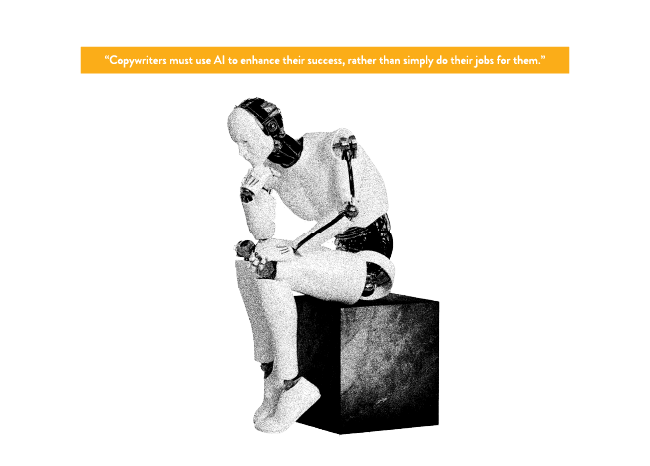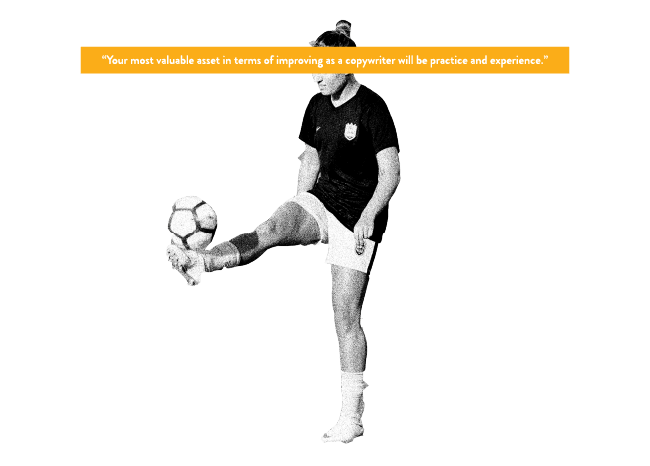
Copywriting is the process of writing, reviewing, and editing content for marketing or promotional context. Copywriters need to develop a wide variety of skills to succeed. Copywriting skills can be acquired through practice and with feedback from other professionals, with some skills more important than others depending on the particular type of content.
What Is a Copywriter?

A copywriter is someone who uses various writing and editing skills to develop content for marketing purposes. Copywriters may produce a wide variety of content, including:
- Landing pages
- Blog posts
- Various advertisements
- Catalogs
- Social media posts
- Tutorials
- Press releases
- Mission statements
- Emails.
Copywriters may work in many different fields or organizations depending on their particular skills and career goals.
What Makes Good Copy?

The following are some typical characteristics of high-quality copy:
- Considers the needs of the audience
- Has few to no spelling or grammatical errors
- Offers unique value
- Supports claims with reputable resources
- Remains on topic
- Uses accessible language
- Clearly answers any questions the audience may have.
You will more effectively ensure the quality of the copy if the article goes through several phases of editing.
What Skills Do Copywriters Need?

Copywriters need to develop a wide range of skills to be successful. Some skills are standard for most copywriting professionals and are widely applicable, while others are particular to the type of content.
Writing Skills
Although this may go without saying, copywriters must develop basic and advanced writing skills to succeed. These writing skills may include:
- Common article structures
- Different writing styles
- Different tones
- Speaking to your audience
- Using accessible language
- Writing transitions
- Simplifying complex topics
- Word choice
- Attention to detail
- Creativity
- Empathy
- Creating an introduction
- Creating a conclusion
- Researching skills.
You will also learn how to properly utilize these skills under varying circumstances.
Creativity and Storytelling Skills
Creative writing and storytelling skills go beyond basic writing skills. It is important to start with basic writing skills and then develop creativity with practice over time. Creativity can draw interest and create unique value, but it will only be as useful with a foundation of strong basic writing skills.
Storytelling, in particular, is a valuable skill in many areas of marketing. Storytelling can emphasize and reinforce an organization’s brand message and make the content more engaging. Furthermore, a story can illustrate the value of the information offered in one particular piece of content as well as the value of the products and services offered by the organization.
Empathy
Empathy is a key skill for any writer or editor. Ultimately the goal with any content is to effectively communicate information. If you do not understand what your audience is looking for, what they do and do not understand, and what language will be most effective to convey your message, you cannot effectively create content. You can develop empathy for the audience with practice and by putting yourself in their shoes.
Proofing and Editing Skills
Proofreading and editing skills can further refine content, helping you identify issues with the writing itself or the information conveyed in the content. You should keep the major goals of the piece in mind as you conduct a review. As for the actual editing process, it will be helpful to have a style guide on hand, either one of your choice or one recommended by your organization.
Research Skills
Research skills are important when reviewing relevant information, understanding that information, and employing it uniquely in your own work. It is also important to be able to find relevant resources and assess their credibility. By leveraging information from credible sources and citing highly authoritative resources, you can ensure your content is accurate, high in quality, and demonstrates expertise.
Communication Skills
General communication skills are also valuable as a foundation for good writing skills. These skills include:
- Interpersonal skills
- The ability to evaluate and employ feedback
- The ability to strategically and effectively solicit feedback from clients
- Demonstration of confidence
- Use of active voice
- Summarization
- Emotional intelligence
- Understanding different communication methods.
General communication skills can translate well into copywriting skills, but that information may have to be conveyed differently in writing than in conversation, as factors like nonverbal communication that are present in conversation are not present in writing.
Marketing Know-how
Copywriters must know how to create copy that is aligned with a brands broader content marketing strategy. As such, copywriters need to have a strong foundation of general marketing skills and knowledge. This includes skills such as:
- Social media marketing
- Email marketing
- Website traffic analysis
- Project management
- Audience profiling
- Customer relationship management
- Data analysis
- Market research
- Advertising
- Brand management.
Content creation and marketing strategies in conjunction create high-quality content marketing services.
SEO Knowledge
If part of your goals in marketing is to draw organic traffic, then as a copywriter you’ll need in-depth understanding of up-to-date SEO best practices and strategies.
By introducing SEO knowledge into your copywriting efforts, you can better set the content up for success in terms of visibility in online spaces. Furthermore, SEO knowledge will increase the chance that your outreach on a project will go beyond a one-time interaction, as the outreach will be part of a larger marketing funnel, as well as a greater network of interlinking pieces of content.
Technical Skills
Many technical skills can also be valuable for copywriters, such as:
- Computer literacy
- Programming
- Data analytics
- Web development
- Understanding of machine learning
- Network management
- Cybersecurity.
Copywriters can benefit from the support of tools to navigate technical problems, such as various guidelines and software.
What About AI for Writing Content?

AI is increasingly being used as a tool in content creation. While it does offer many benefits, such as conducting repetitive tasks and ideating information, it is not a replacement for human skills. Without the influence of a human copywriter, the content will lack the unique value that a person can provide, as well as valuable empathy that can make the content more useful to the audience. As such, copywriters must use AI to enhance their success, rather than simply do their jobs for them.
How To Improve as a Copywriter

There are many ways that you can develop your skills as a copywriter, including:
- Determining what skills will be most useful for your particular goals
- Getting hands-on professional experience
- Attending classes or workshops
- Finding a mentor
- Joining relevant career forums or other online resources
- Finding community resources such as career centers.
Your most valuable asset in terms of improving as a copywriter will be practice and experience.

